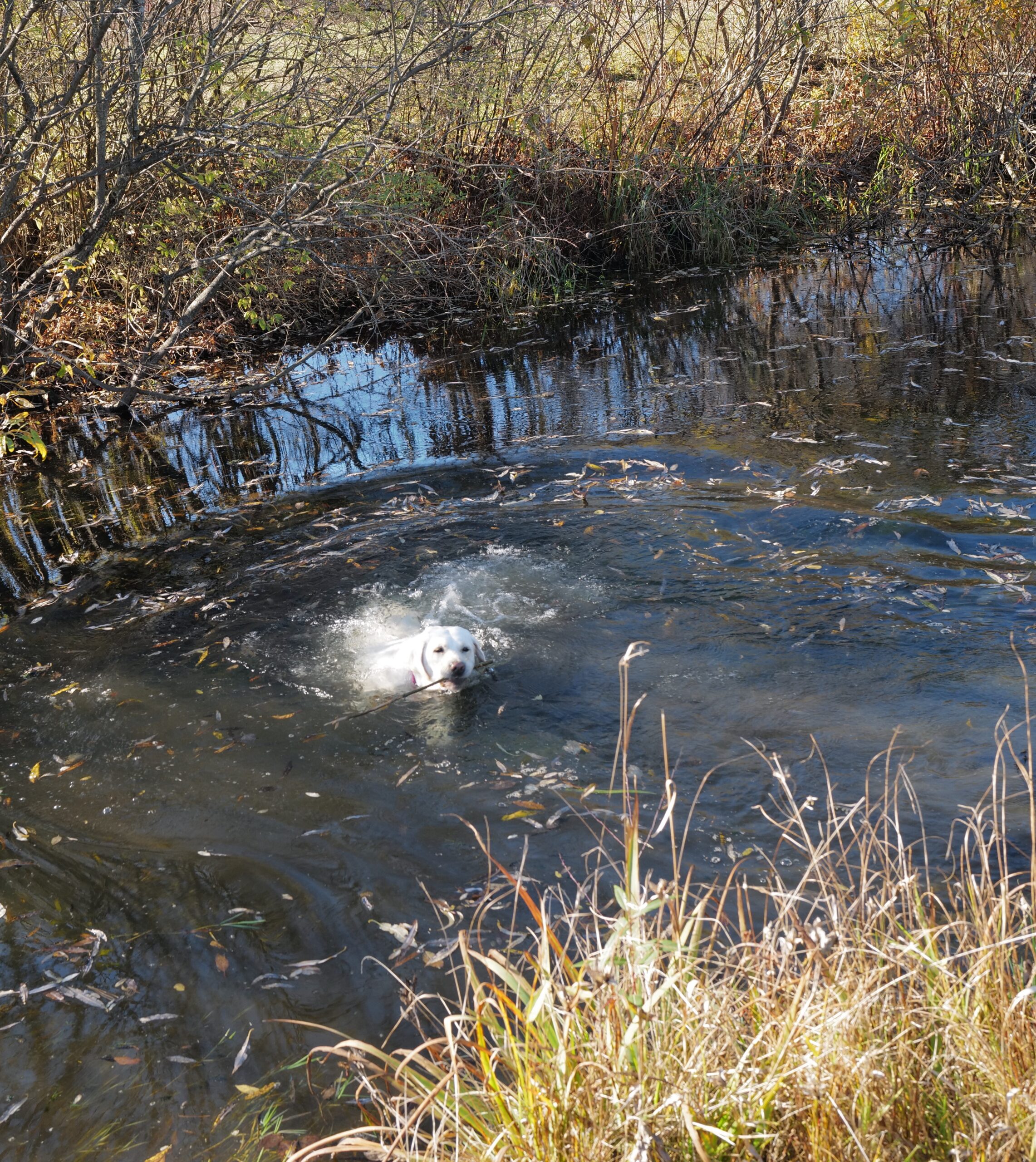I received a Dog Support request for help this afternoon from someone who is intelligent and thoughtful and is doing her new dog the greatest of services by asking for help before she has to untrain a dog rather than mess him up and take the trouble to train him.
She got the dog 48 hours ago, a lively Spaniel, and she is showing some behaviors that are left untended, which could cause some problems for her and the family, the issues we often hear people complain about.
What is so different about her is that she wants to get in front of any problems, not fall behind them.
Among her concerns: she wants the dog to ride alongside her when she takes her horse out for a ride. She wants to know how to acclimate a new dog to a farm.
This is very foresighted because, done correctly, this is easy. Done thoughtlessly, a dog can easily get injured or traumatized for life around big animals.
“I wouldn’t do this now,” she wrote me about the riding; “how can I help him cope when we start?” How fortunate this dog is.
Her other concerns:
-The dog has attached firmly to her but seems anxious and uncomfortable around her husband. She wants to deal with this before it gets entrenched.
-She has always been the person to walk her dogs. she wants to know if that is all right or if there is a better way.
-The dog, who has spent his life with a breeder, is anxious in the car or truck, so much so that he shakes. Is taking him out on regular trips a good idea?
And most importantly, she is asking the question every new dog owner should ask: “How do we help our new dog be safe and comfortable with both of us? Is this a time thing, or should we be doing something now to help?’
I found this message so impressive I wanted to share it with others.
Getting a dog is one of the most important things anyone can do in a family. There are usually simple (and inexpensive) solutions to many dog problems like this; people don’t know where to seek help. This is one of the reasons I started the Dog Support program on my blog.
People tend to think the dog will sort him or herself out somehow, but it’s in the first days in a new environment that trouble will present itself, and there is time to reverse or correct it before it becomes a problem or a habit.
Millions of dogs have been returned to shelters since the pandemic, and most will be killed. This person – I’ll call her R – is thinking ahead, asking the right questions, and taking responsibility for her adorable and seemingly trainable dog now when it matters.
Common sense training can save as many or more dogs as a dog rescue.
I encourage people to be their gurus; they know their dogs, homes, and family better than strangers. If they can’t, it is time to seek an experienced dog trainer. I am not a professional trainer or vet; I never give medical animal advice t anyone for any reason.
I consider the amateur diagnosing I see online to be irresponsible and unethical. I admire vets who work hard for years and take out horrendous loans to run a practice. I listen to them, but only if they will listen to me. I’ve been very fortunate in that way.
Getting a dog is a big deal; it’s not just a cute thing or something we do to feel compassionate and good about ourselves. The dog can’t train himself.
Taken as something to think about and get some help for if necessary is the absolute kindest and most loving thing one can do with a dog. True dog lovers know that well.
This dog is luckier than he or his owner knows.
I know from her message that this dog lover will react thoughtfully and quickly to ensure that she gets the dogs she wants and will love.
That is how the dog will be safe and comfortable in her home and how she will most likely get to have a dog that will make her feel safe and comfortable and very much loved.
We are talking next week, and I’m anxious to meet her; she sent me a photo of her beautiful young dog.
Her breed is well known for intelligence and ease of training. I need to know more, but I’m guessing he’s just new and uncertain. But those are valid things to worry about. This is the time to deal with them.
The Dog Support service is rolling along. It’s happening.
We’re putting a link and concise application paragraph into the requests for help, which will cost $50 for a half hour (this will rise to $65 in a month or so) and $75 for an hour.
I have one or two slots available next week.
My Zoom sessions are on Monday, Wednesday, and Friday afternoons, 5 p.m EDT. If people don’t like Zoom, we can talk on the phone or Facetime.
The form will be emailed to me at jon@bedlamfarm.com, and I will respond personally to the request if it feels right to me and if I think I can help and offer links and payment details.
All you have to do for now is email me at jon@bedlamfarm.com. Tomorrow, I’m working with the other of a traumatized Great Dane who is terrified of people.
I’m enjoying this work, and the results have been great. So far, 100 percent. I’m sure there will be some failures; some dogs are too damaged or poorly bred for me to help, but so far, so good.

